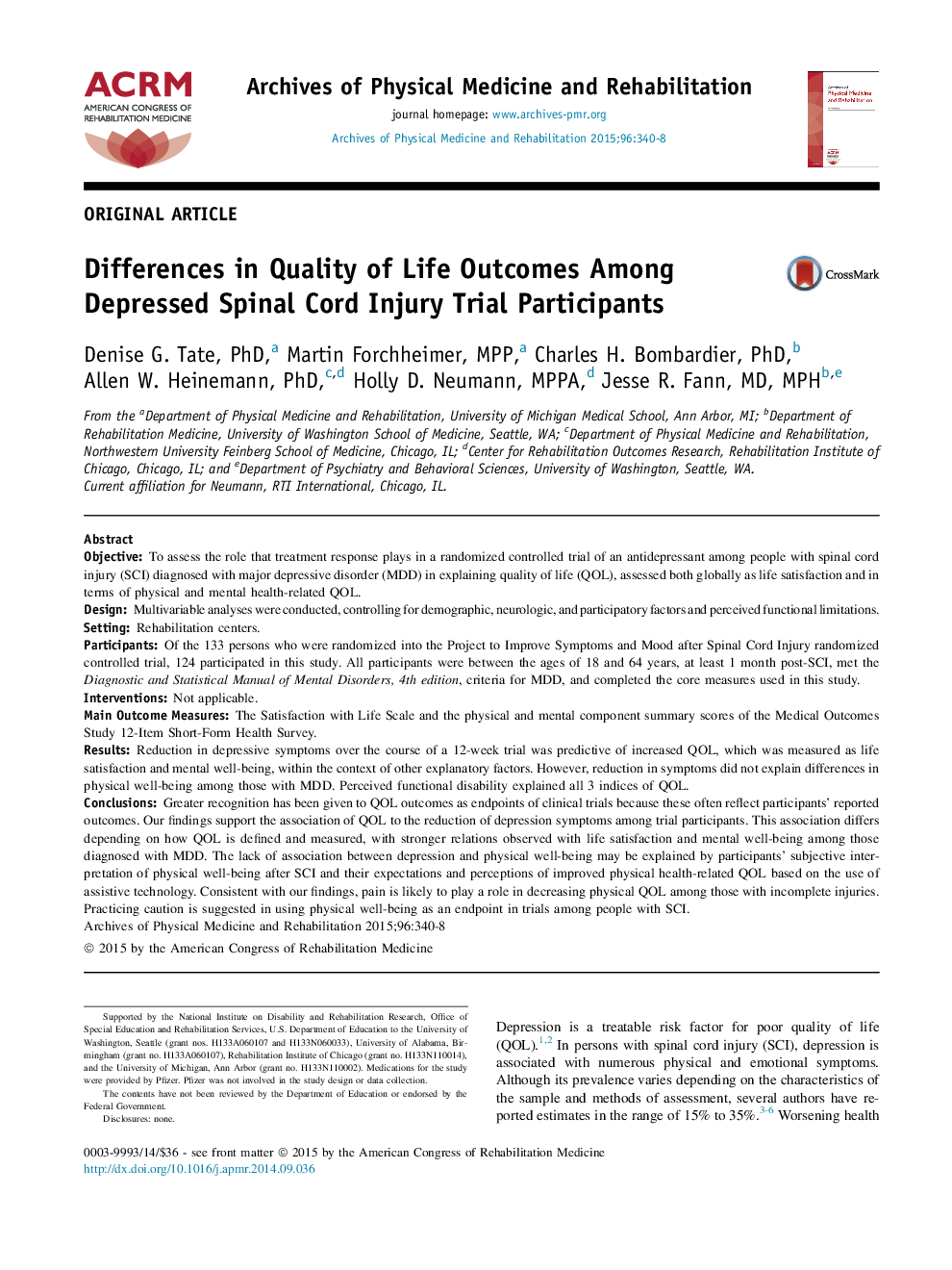| Article ID | Journal | Published Year | Pages | File Type |
|---|---|---|---|---|
| 6149459 | Archives of Physical Medicine and Rehabilitation | 2015 | 9 Pages |
Abstract
Greater recognition has been given to QOL outcomes as endpoints of clinical trials because these often reflect participants' reported outcomes. Our findings support the association of QOL to the reduction of depression symptoms among trial participants. This association differs depending on how QOL is defined and measured, with stronger relations observed with life satisfaction and mental well-being among those diagnosed with MDD. The lack of association between depression and physical well-being may be explained by participants' subjective interpretation of physical well-being after SCI and their expectations and perceptions of improved physical health-related QOL based on the use of assistive technology. Consistent with our findings, pain is likely to play a role in decreasing physical QOL among those with incomplete injuries. Practicing caution is suggested in using physical well-being as an endpoint in trials among people with SCI.
Keywords
MDDCHART-SFHRQOLSDSAISQOLVIFMCsSF-12SWLSQuality of lifeRandomized controlled trialSpinal cord injuriesSpinal cord injuryMajor depressive disorderDepressionRehabilitationphysical component summarymental component summaryPCssatisfaction with life scalesciVariance inflation factorMedical Outcomes Study 12-Item Short-Form Health SurveySheehan Disability ScalePrismsHAMDHealth-related quality of life
Related Topics
Health Sciences
Medicine and Dentistry
Medicine and Dentistry (General)
Authors
Denise G. PhD, Martin MPP, Charles H. PhD, Allen W. PhD, Holly D. MPPA, Jesse R. MD, MPH,
